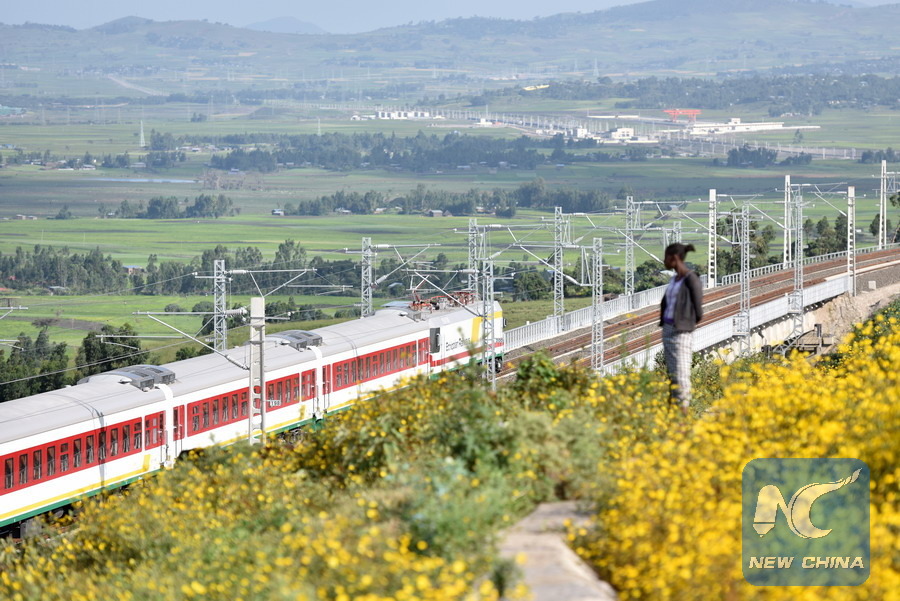A train runs on the Ethiopia-Djibouti railway during an operational test near Addis Ababa, Ethiopia, on Oct. 3, 2016. (Xinhua/Sun Ruibo)
NAIROBI, Oct. 26 (Xinhua) -- Economic growth in Africa is set to drop to a 23-year-low of 1.4 percent in 2016 due to the drop in oil prices, drought in Southern Africa and the political crisis in Eastern Africa, the International Monetary Fund (IMF) forecast on Tuesday.
Abebe Selassie, IMF Director of the African Department, said the record dip in economic growth in Africa would be short-lived and it is resulted from the massive drop in commodity prices, including heavy metals and oil, affecting key African countries.
"There are four reasons for this slowdown, the drought, low commodity prices, the tighter financing conditions and the delayed policy response in the region," Selassie told reporters during the launch of this year's economic outlook for the Sub-Saharan Africa.
IMF says the region is likely to recover economically within the shortest period if reforms are undertaken to correct a drop in domestic revenue and the effective management of foreign debt, which has partly affected local exchange rates.
According to the IMF projections, the economic growth in Africa is expected to grow at 3 percent in 2017 and improve to 4.5 percent in 2018.
"This slowdown will be similar to previous ones. The delayed policy response as a result of the political uncertainty and elections is partly the reason for this, but if these risks are dealt with, the economies will recover," Selassie added.
Speaking at the event, Kenyan Treasury Cabinet Secretary Henry Rotich, said the government is preparing a number of laws to ensure that it deals effectively with rising needs to finance large-scale infrastructure projects such as the Standard Gauge Railway project.
"We have a Value Added Tax (VAT) law and a new Income Tax law that is being completed to ensure that there are no free tax exemptions," Rotich said.
The government plans to implement the recommendations of IMF on improving revenue collection through the improvement of tax collection and raising the domestic revenue collection to between 22-25 percent of the Gross Domestic Product (GDP).
Kenya's GDP stood at 70 billion U.S. dollars and the government is likely to raise revenue collection to at least 25 percent.
Rotich said the efforts to raise the tax collection were likely to take between five to 10 years.


